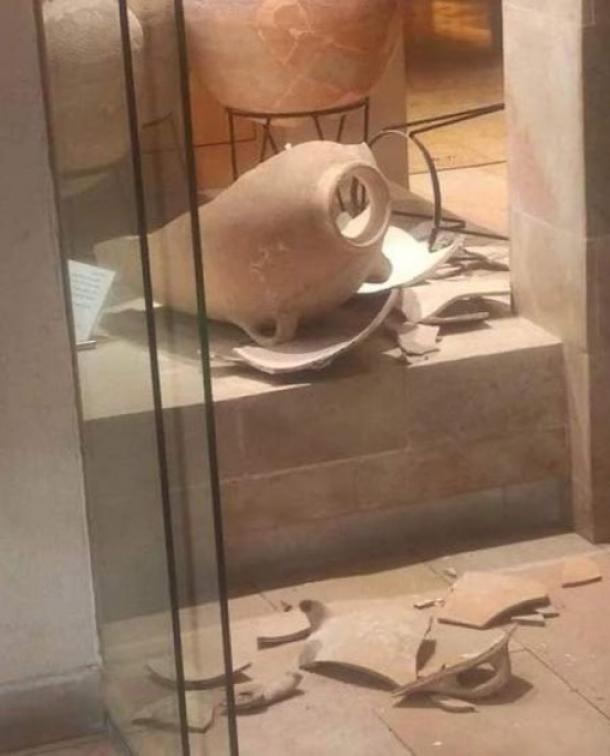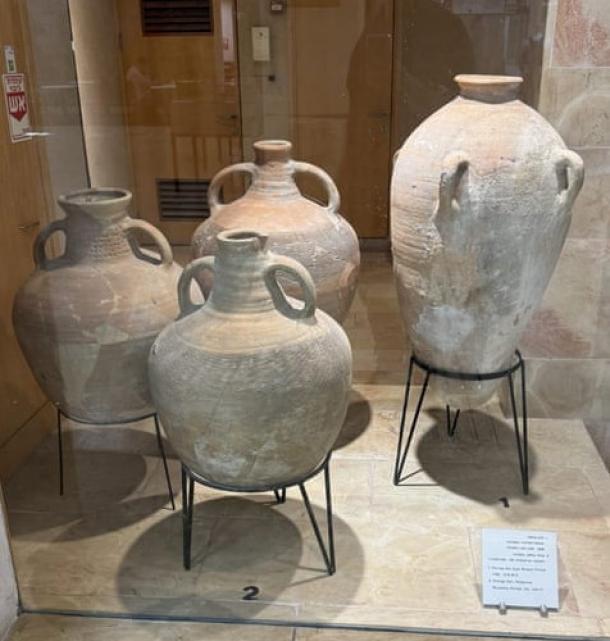Having survived in one piece for 3500-4000 years, a Bronze Age jar met an unfortunate end when a four-year-old boy accidentally pulled it over during a visit to the Hecht Museum in Haifa, Israel. The jar, a rare and intact artifact believed to have been used for storing wine or olive oil, was on display without protective glass, a deliberate choice by the museum to enhance visitor experience.
A Curious Accident
The incident occurred when the young boy, intrigued by the ancient jar, reached out to touch it. According to his father, Alex, the boy was curious about what was inside the jar, which led to the accidental tug that sent the precious artifact crashing to the floor. “I was shocked,” Alex recounted in an interview, “At first, I couldn’t believe it was my child who had done it.”
The Hecht Museum, located within the University of Haifa, has a reputation for its unique approach to displaying artifacts. They aim to provide visitors with an unobstructed view of history, believing that the lack of barriers adds a special charm to the experience. However, this philosophy comes with risks, as demonstrated by this recent accident.

The broken jar had survived intact for 3500-4000 years. (Syed Ali/X)
The Museum’s Response
Despite the significant damage to the ancient jar, the museum staff responded with understanding. Lihi Laszlo, a representative of the museum, emphasized that while intentional damage to exhibits is treated severely, this case was clearly an accident involving a very young child. “The response will be accordingly,” Laszlo assured, highlighting the museum’s leniency in such circumstances.
The jar, dated between 2200-1500 BC, was an exceptionally rare find due to its (previously) intact condition. Most artifacts from this period are discovered in a broken or fragmented state, making this jar particularly valuable to archaeologists and historians. The museum has already initiated the process of restoring the jar, though it will never return to its original state of preservation.

Some of the jars on display at the Hecht Museum in the University of Haifa are kept behind protective glass. (Hecht Museum)
Moving Forward: No Glass Protection
In light of the incident, one might expect the museum to reconsider its approach to artifact display. However, the Hecht Museum remains committed to its philosophy.
“Whenever possible, items are displayed without barriers or glass walls,” a museum spokesperson confirmed.
The museum believes that this method enhances the visitor experience by allowing a closer connection to the artifacts.
As a gesture of goodwill, the museum invited the boy and his family back for a guided tour, an opportunity for them to learn more about the history of the artifacts and the importance of preservation. The incident, while unfortunate and a very sad loss, serves as a reminder of the delicate balance museums must maintain between accessibility and the protection of priceless historical objects.





